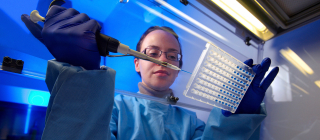But the fact that Pfizer appears to have earned something like $900 million in pretax profits from its vaccine — coupled with its comparatively small sales to poor countries — suggests that profits have trumped other considerations. That could undercut the company’s embrace of loftier principles.
“At Pfizer, we believe that every person deserves to be seen, heard and cared for,” the chief executive, Albert Bourla,
said in January as the company announced it would join Covax. “We share the mission of Covax and are proud to work together so that developing countries have the same access as the rest of the world.”
But the company seems to have prioritized higher-priced sales.
“Despite all the talk about Covax, they have been far more interested in bilateral deals, because that’s where they make their money,” said Richard Kozul-Wright, director of the division on globalization and development strategies at the United Nations Conference on Trade and Development in Geneva. “It’s one of the great public relations triumphs of recent corporate history.”
Multiple factors explain the inequitable nature of Pfizer’s vaccine distribution.
The shot, which must be stored and transported at very low temperatures, is less practical for hard-to-reach parts of the world than other shots, like those from AstraZeneca and Johnson & Johnson, that can simply be refrigerated. Some poor countries were initially not hit hard by the virus, and so their governments had less urgency to place orders for the Pfizer vaccine, to the extent that they could afford to pay for the shots.
“Not everyone was interested in the vaccine or prepared to take steps; thus, conversations continue, including working with Covax beyond their initial order of 40 million doses,” said Ms. Castillo, the Pfizer spokeswoman.
In India, where the virus is raging out of control, Pfizer’s vaccine is not being used. The company applied for emergency authorization there but
withdrew the application in February because India’s drug regulator was not willing to waive a requirement that it run a local clinical trial. At the time, India’s coronavirus case numbers were manageable and vaccines being made locally were thought to be sufficient.
Pfizer and India’s government
have since resumed talks. On Monday, Mr. Bourla
said the company would donate more than $70 million worth of medicine to India and is trying to fast-track the vaccine authorization.
Pfizer has publicly promised to run its company not solely for the enrichment of shareholders, but for the betterment of society.
Mr. Bourla, who earned $21 million last year, was among the 181 heads of major companies who signed a Business Roundtable pledge in 2019 to focus on serving an array of “stakeholders,” including workers, suppliers and local communities — not only investors.
The financial figures that Pfizer reported on Tuesday understate how much money the vaccine is generating. Pfizer splits its vaccine revenue with BioNTech, which will
report its own first-quarter results next week.
BioNTech said in March that it had locked in revenue of nearly 10 billion euros, or about $11.8 billion, based on vaccine orders at the time.
The vaccine is expected to keep generating significant revenue for Pfizer and BioNTech, especially because people are likely to need regular booster shots. Pfizer said on Tuesday that it expects its vaccine to generate $26 billion in revenue this year, up from its previous estimate of $15 billion.
Vaccine developers have been trying to play down the financial upside. Last week, when AstraZeneca reported its vaccine revenue, it said that the vaccine effort had slightly dented its overall profits.
Companies are eager not to be seen as profiting from the pandemic, especially as pressure mounts on the Biden administration to relax protections on intellectual property and allow poor countries to produce more affordable versions of the vaccines. Pfizer and other pharmaceutical companies have staunchly opposed such proposals.
A group of developing countries led by South Africa and India has proposed to the World Trade Organization that intellectual-property protections be loosened on
coronavirus vaccines during the pandemic.
The proposal is intended to pressure pharmaceutical companies to ensure access to vaccines for developing countries, perhaps by offering discounted prices or by partnering with other companies to increase capacity.
“It could just be an incentive for companies to come forward and collaborate,” Mustaqeem De Gama, councilor at the South African mission to the W.T.O. in Geneva, said in an interview late last year. “But if left to the choice of companies, usually companies will refuse to collaborate and share what knowledge they have.”





